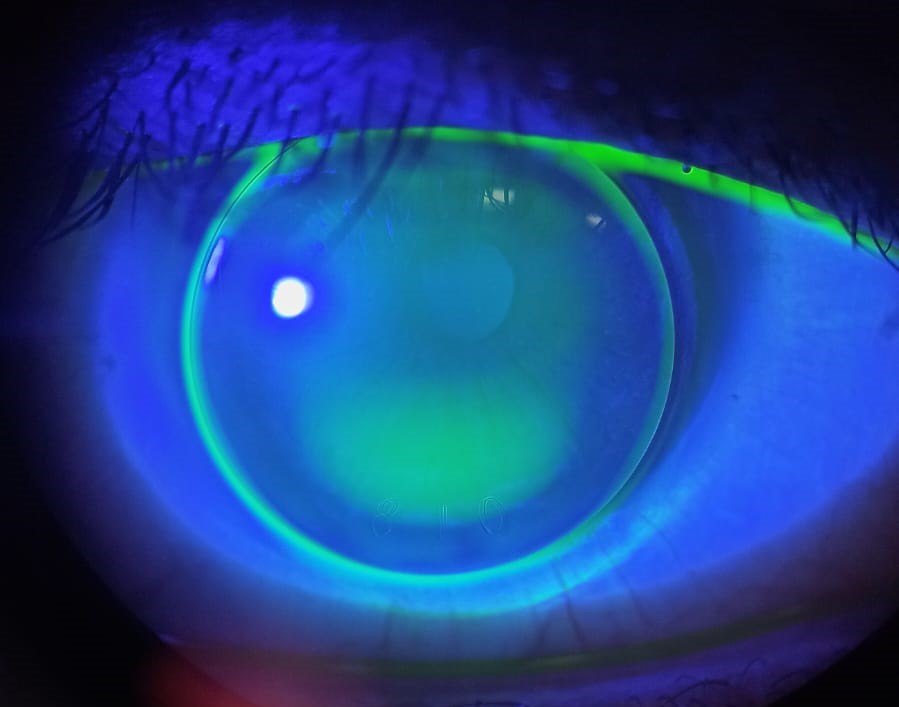

A rigid gas-permeable lens, also known as RGP lens or GP lens or colloquially, hard contact lens, is a rigid contact lens made of oxygen-permeable polymers. RGP contact lenses are rigid, but they should not be confused with old styled hard contact lenses, which are now obsolete.
RGP lenses are smaller than soft lenses, fitting within the cornea rather than overlapping onto the white of the eye. This allows the tears to flow freely under the lens and this combined with the oxygen permeability of the lens material means that RGP lenses are healthy for your eyes.
Because RGP lenses are rigid, they correct for any imperfections in the shape of the cornea such as astigmatism, and in many cases give a superior standard of vision to soft lenses. They also last for many months and are rather more robust than soft lenses.
The main reason is that they usually require an adaptation period of several days before they become comfortable whereas soft lenses become comfortable within a few minutes. However, if you are prepared to adapt, you will be rewarded with excellent vision, robust lenses, and reduced cost. RGP lenses are also less suitable for sports and other activities as the lens can become dislodged rather more easily.
Most types of eye problems (refractive errors) can be corrected with RGP contact lenses including short-sightedness, long-sightedness, astigmatism, and presbyopia.
Gas permeable contact lenses offer some outstanding benefits over soft lenses. For one, because GP lenses are made from a firm plastic material, they retain their shape when you blink, which tends to provide sharper vision than pliable soft lenses.
GP lenses also are extremely durable. Although you can break them (for instance, if you step on them), you can’t tear them easily, like soft lenses. And they’re made of materials that don’t contain water (as soft contact lenses do), so protein and lipids from your tears do not adhere to GP lenses as readily as they do to soft lenses. With a little care, gas permeable contact lenses can last for years, as long as you don’t require a prescription change.
Though they are less popular than soft lenses, gas permeable contacts are the best choice for many individuals, including: